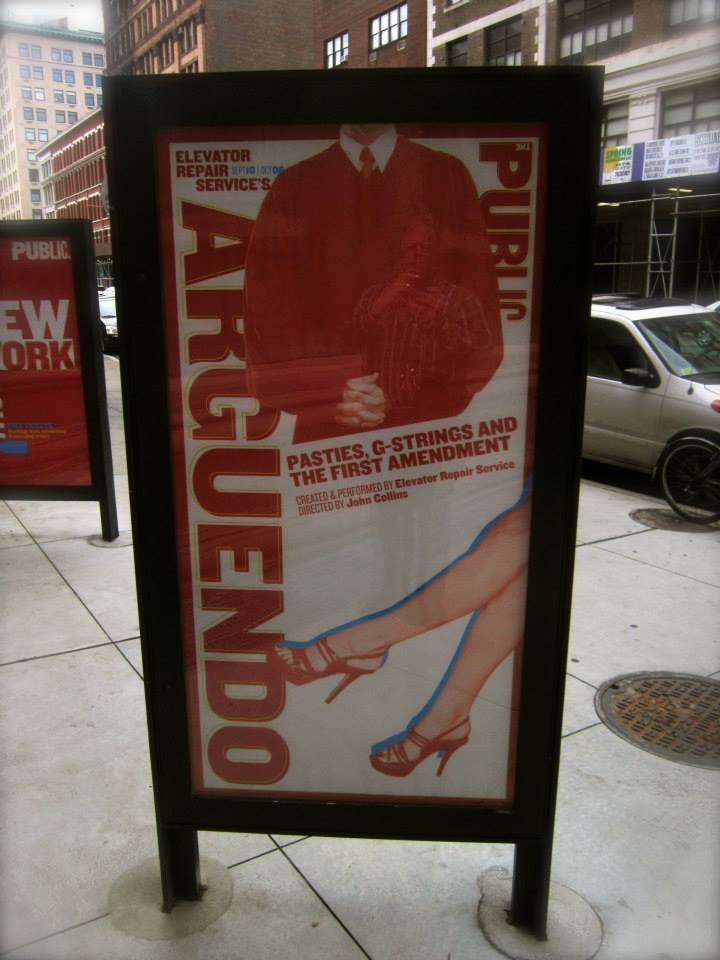May it please the Court, and for the sake of argument, the Elevator Repair Service has clear and unambiguous standing in the matter of the transformation of non-theatrical texts into performed drama, as evidenced by Exhibit A, Gatz, which brought every word of Fitzgerald’s Gatsby to the stage, and Exhibit B, The Select (The Sun Also Rises), which did much the same with Hemingway. That they have now done it again with the oral arguments for Barnes v. Glen Theatre, the nude dancing case argued before this Supreme Court in 1991, merely extends their competence.
Let me state clearly that I did not see the much-admired Gatz, and found The Select, although on balance meritorious, to be ingenious but flawed. However, the relevant fact here is that ARGUENDO (the title of which is a legal term in which you need no instruction) is self-enacting as a piece of theater, by which I mean that it inculcates in its style and structure the points at issue in the case, such as whether dance is a form of speech under the First Amendment, whether it would then follow that any gesture or movement at all might qualify as dance and so as protectable expression (such as, for example, the rolling about on chairs of the actors as they depict your august presences), whether under the First Amendment an emotion may be expressed as much as can be an idea, whether an inept expresser might cause an intended act of protected expression to fail to actually become one, whether nudity is only a “manner” of expression that is inessential to any conceivable message, and so on.
It is in that spirit that the disrobing of counsel near the end of the argument must be regarded, in that said act permits the recipient of the message to adjudge whether the frontal exposure in question enhances or detracts from the intended message.
Let me note at this juncture that the semiotics of dress are as well covered (or uncovered) in ARGUENDO as those of undress, with Chief Justice Rehnquist’s Gilbert and Sullivan robe and Justice Ginsberg’s lace collar deconstructed to a point of equal ridicule.
Yes, Your Honor, it is true, and this has been stipulated, that the Elevator Repair Service has much fun at the Court’s expense, in, for example, playing up the reducio ad absurdum of Justice Scalia that if nudity is accepted as protected expression, then why not expressive murder as well? Of the additional fun made of the hoops through which lawyers and judges jump in an effort to find solid ground for their arguments and decisions I am prepared to admit that it is too dismissive of the value of the legal fiction, a judicial practice that negotiates the outer boundaries of the law when the desirable result and the logical result are in seeming conflict.
This is, I will say in closing, a great circus of language and logic that the Elevator Repair Service is arguing before audiences at the Public Theater. If there are no further questions, I will reserve the remainder of my time.
Follow the links for more on the Elevator Repair Service or Public Theater.
